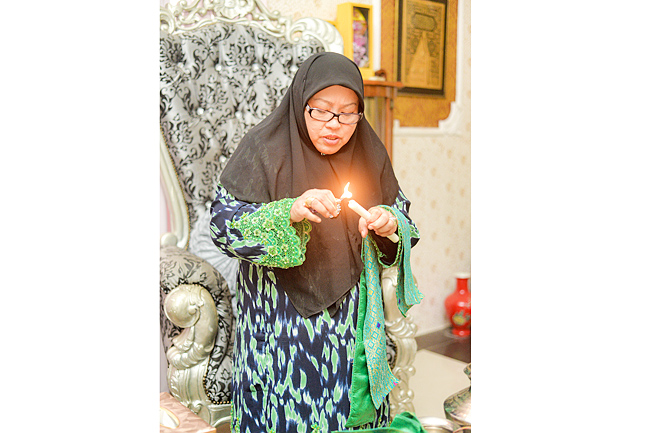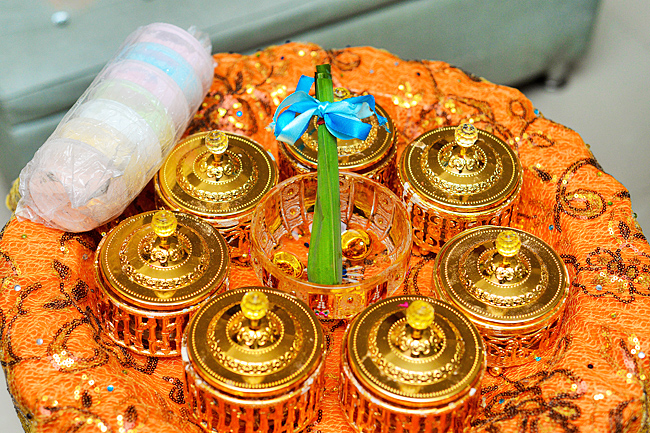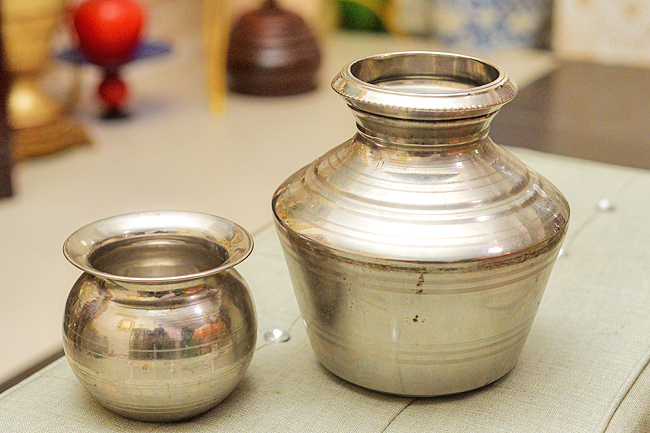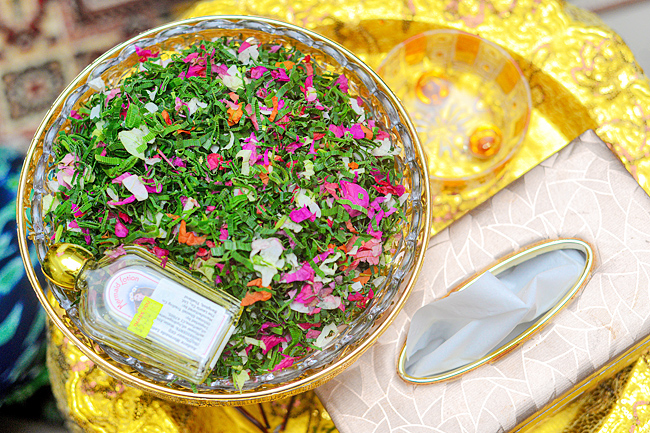Sixty-nine year old Hajah Ajijah binti Haji Momin has spent nearly two decades as a pengangun for Malay weddings in the country.
“The term is derived from angun, or anggun, which means beauty,” said the seasoned practitioner.
Traditionally, only women over the age of 50 and are married can take on the role. “They are hired as companions for either a bride- or a groom-to-be to prepare them for the wedding,” said Hajah Aijijah.
Malay wedding ceremonies are steeped in rituals and traditional customs that are significant events in the lives of the couple and their communities across the region.
From the tiny Brunei to the sprawling nation of Indonesia, practices can differ. The pengangun is still significant in the Brunei Malay wedding, said Hajah Ajijah.
In other Malay regions, they are also known as mak andam, though whether or not they continue in its traditional roles is unclear, as they are now mainly referred to as make-up artists.
Depending on the request of the couple’s families, they may prefer to have a full traditional ceremony which could span two weeks or a more simple wedding that can be done over a few days.




“It’s definitely no easy task,” said Hajah Ajijah. “We’ve been entrusted by parents to accompany, protect and assist their child weeks before the wedding day.”
“Penganguns bear the responsibility of safeguarding the bride or groom from potential illnesses during the wedding ceremony.
“They also play a crucial role in educating the couple on various aspects related to married life. So even if some families prefer to have simplified ceremonies, the pengangun must still ensure that the necessary practices and rituals are thoroughly performed and understood by the couple,” she said.
To help prepare the couple for their important day, the pengangun uses a number of tools and ceremonial objects to “create a radiance and glow”.
These include powders, scented flowers and candles. One example is bedak lulut, a paste used to ceremonially cleanse the skin of the bride or groom.
Hajah Ajijah’s journey into the life of a pengangun felt like one of fate. While her late grandmother was a prominent one, she didn’t consider it as something she would have wanted to take up.
She was first a civil servant before changing jobs, and moonlighting as a bridal make-up artist.
Through this, she met penganguns, who shared knowledge of rituals and customs that the bride or groom needed to undergo before their wedding.
One day, while preparing to apply make-up on a bride, her parents came to her and told her that the pengangun they hired was unable to attend the ceremony due to illness, and requested Hajah Ajijah to step in to the position.
She accepted with mixed feelings, she said.
On one hand, it was her first time. On the other hand, she had a firm belief she would be able to fulfil the role with the required dedication and expertise.
“It went well, and since that day, I was driven to learn more about the role and acquire in-depth knowledge,” she said.
She threw herself whole-heartedly into the role.
One of the highlights of her work as a pengangun was serving as one for the daughters and daughters-in-law of His Majesty Sultan Haji Hassanal Bolkiah Mu’izzaddin Waddaulah ibni Al-Marhum Sultan Haji Omar ‘Ali Saifuddien Sa’adul Khairi Waddien, Sultan and Yang Di-Pertuan of Brunei Darussalam as well as other royal family members.
“They were such memorable experiences, and it will remain fresh in my memories to share with my grandchildren,” she said.
Eventually, she became intent on preserving the customs and traditions of the role, believing firmly in its importance.
As a pengangun, she is a keeper of traditions, preserving customs that have been passed down through the generations, especially on the subject of marital affairs.
“Beliefs in any matter or custom also play a significant role. The rituals performed are merely symbols or traditions, and we should not rely on them if we do not genuinely embrace the custom, as it may bring negative consequences to the couple.”
After almost two decades of serving as a pengangun and seeing the traditional role overshadowed by modern preferences, Hajah Ajijah hopes there will be a new generation that will take up the mantle in this field.
“Age is not a barrier if one is genuinely interested in becoming a pengangun,” she said. – Rokiah Mahmud


